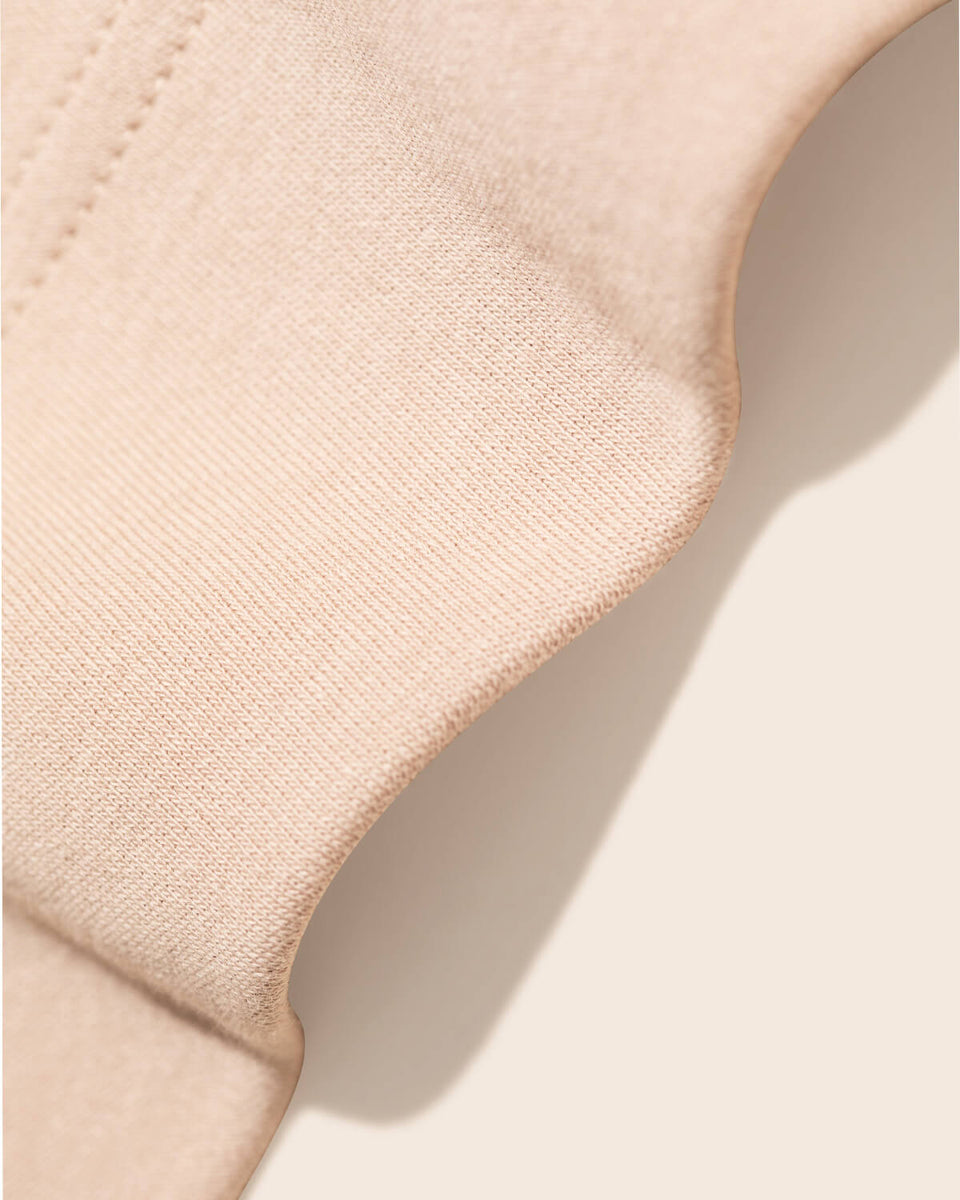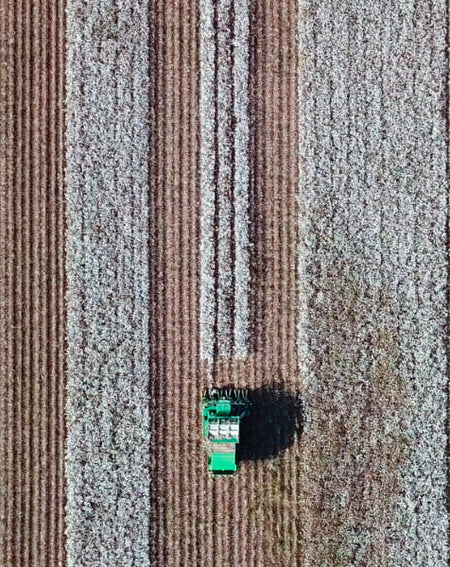Shop All
Underwear
Bras
Lounge

We believe in setting new standards. So we skipped the pesticides and PFAs-ridden fabrics that make up most clothing out there and went with a natural fiber. Our essential innerwear is made from clean, comfortable, certified organic cotton – because it’s easy on the earth, and easy on you.

Prioritizing Safe Materials
Most people know about the benefits of choosing organic produce or using organic skincare products, but that is usually where the buck stops.
We’re committed to organic cotton for innerwear because it’s best for being next to your body - all day, every day. We champion natural and non-toxic materials because they're safer to wear and safer to manufacture than the alternatives out there.
Organic cotton is free from harmful chemicals at both the agricultural and manufacturing levels – ensuring that toxic chemicals common in clothing like azo colourants, heavy metals, carcinogens (like formaldehyde), PFAs, and VOCs are strictly prohibited.1
We believe in making better products for you, for the earth, and for the people who make them.


Doctor Recommended
Most clothing today is made from plastic-based materials that don’t breathe and trap moisture – creating a perfect storm for irritation and discomfort. As a natural fiber, cotton is the top choice recommended by doctors and OBGYNs because it's better for breathability, skin sensitivities, and a variety of other health issues. We go above and beyond with a certified organic fabric that is free from added chemicals and guaranteed to prevent unwanted irritation.


Certified Sustainable
By investing in an organic cotton supply chain, we prioritize the wellbeing of our planet and its people. We're committed to the highest industry standards from farm to factory, which is why we hold the best certifications in the business, including the Global Organic Textile Standard, Oeko-Tex, Fair Trade International, and Forest Stewardship Council seals. Rest assured that our clothing is managed responsibly from the farm through the end of its use - and third party auditors ensure compliance at every step of the process.



Non-GMO seeds
No pesticides allowed
Natural Fertilizers only [compost, manure]
GMO Seeds
More and more pesticides and herbicides are needed as weeds grow resistant
Uses 2.5% of arable agricultural land globally but consumes 16% of the world’s pesticides
Safe for soil, plants, animals and human interaction
Creates more biodiversity and promotes soil health
Conserves water and uses rainwater more efficiently
Pesticides and herbicides pollute soil and eventually wash into local drinking water, affecting local communities
Chemically Intensive processing
Fair labor standards with living wages
Hand-picked, creating more jobs for locals
Machine-picked, creating a large carbon footprint
Large prevalence of forced labor
No toxic chemicals that are perceived harmful to human interaction
Harmful toxic chemicals can leach into skin upon contact
Safely biodegrades over time for
regenerative nutrients
Leaches harmful toxic chemicals into the earth as it biodegrades over time
Non-GMO seeds
No pesticides allowed
Natural Fertilizers only [compost, manure]
GMO Seeds
More and more pesticides and herbicides are needed as weeds grow resistant
Uses 2.5% of arable agricultural land globally but consumes 16% of the world’s pesticides